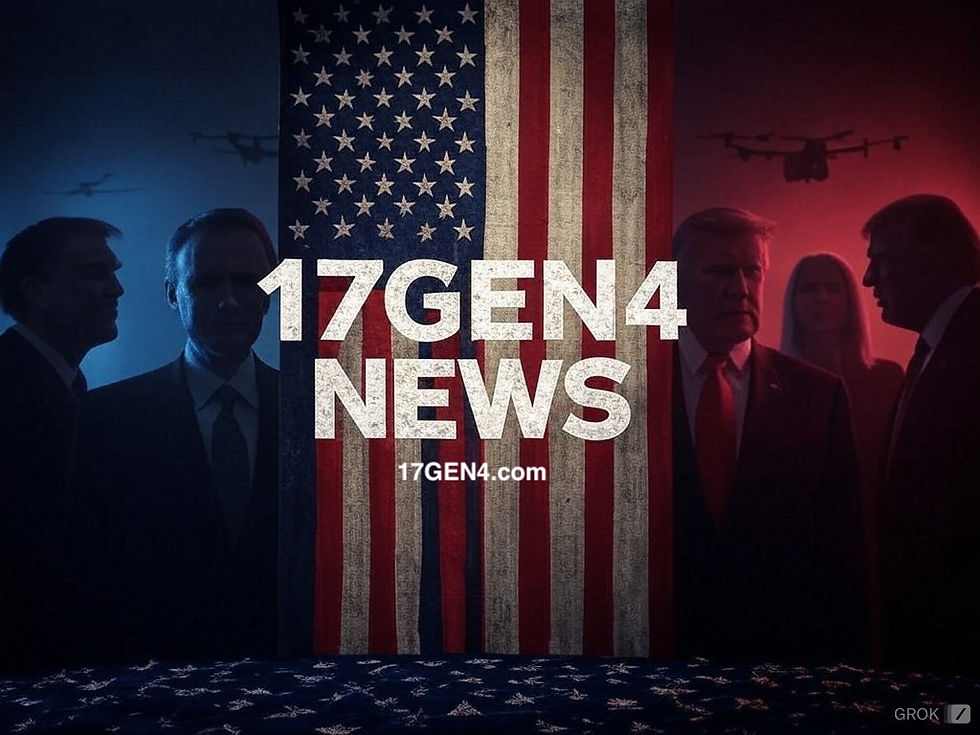Kash Patel and UnitedHealthcare intersection of cybersecurity breaches and candidate nomination
- 17GEN4

- Dec 4, 2024
- 3 min read
Kash Patel was reportedly targeted in an Iran-backed hacking attempt, as per US media reports. This incident is significant because it occurred around the time when UnitedHealthcare's parent company, UnitedHealth Group, experienced a major cybersecurity breach involving its subsidiary, Change Healthcare, in February 2024. Although there is no direct evidence linking the two events, the timing and nature of these attacks on high-profile targets suggest a broader context of cybersecurity threats that might indirectly relate to Patel's role, especially if his position involves oversight of national security or health-related data security.
In February of 2024 - Nancy Pelosi made stock purchases in Palo Alto Networks, a cybersecurity company, right before UnitedHealthcare announced a security breach in 2024.
Brian Thompson, CEO of UnitedHealthcare, exercised stock options and sold shares worth $15.1 Million on Feb 16th, 2024 - two weeks before news of the federal antitrust probe went public.
February 21, 2024 - Change Healthcare, a subsidiary of UnitedHealth Group experienced one of the largest data breaches in U.S. history.
Kash Patel was nominated by President-elect Donald Trump to be the FBI Director, a position where he would have significant influence over national security matters, including cybersecurity policies. Given the critical role of cybersecurity in healthcare, especially after incidents like the one at Change Healthcare, Patel's potential policies or oversight could indirectly affect companies like UnitedHealthcare in terms of regulatory compliance, security standards, or investigations into breaches.
The Breach:
Date: Discovered on February 21, 2024.
Affected Company: Change Healthcare, a subsidiary of UnitedHealth Group, which processes around 15 billion healthcare transactions annually for about half of all Americans.
Nature of the Attack: A ransomware attack by the ALPHV/BlackCat ransomware group. The hackers managed to access Change Healthcare's systems using stolen credentials, without the protection of multi-factor authentication (MFA), leading to the deployment of ransomware across the network.
Impact:
Data Exposed: The breach potentially affected personal and health data of over 100 million individuals. This included sensitive information like names, addresses, Social Security numbers, insurance IDs, patient diagnoses, treatment information, and billing codes.
Operational Disruption: The attack led to widespread disruptions in healthcare operations across the U.S., affecting patient care by causing delays in pharmacy services, claims processing, and payments to healthcare providers. It was described as one of the most significant disruptions to the U.S. health system due to a cyberattack.
Response:
Ransom Payment: UnitedHealth Group paid a $22 million ransom in an attempt to regain access to the systems and ensure the deletion of the stolen data. However, the hackers did not delete the data, leading to further complications.
Investigations: The U.S. Department of Health and Human Services (HHS) Office for Civil Rights initiated an investigation into whether there was a breach of protected health information (PHI) and if UnitedHealth complied with HIPAA regulations. Additionally, there were congressional hearings where UnitedHealth CEO Andrew Witty testified about the incident.
Financial Impact: The breach cost UnitedHealth Group approximately $2.45 billion in direct response and business disruption costs by the end of 2024, including system restoration, revenue loss, and support for affected providers.
Legal and Regulatory Actions:
Class Action Lawsuits: Multiple class action lawsuits were filed against UnitedHealth Group over the breach, accusing the company of failing to safeguard patient data.
Notification: Change Healthcare began notifying affected individuals in June 2024, with the process extending into October when the number of affected individuals was officially confirmed as 100 million.

Comments